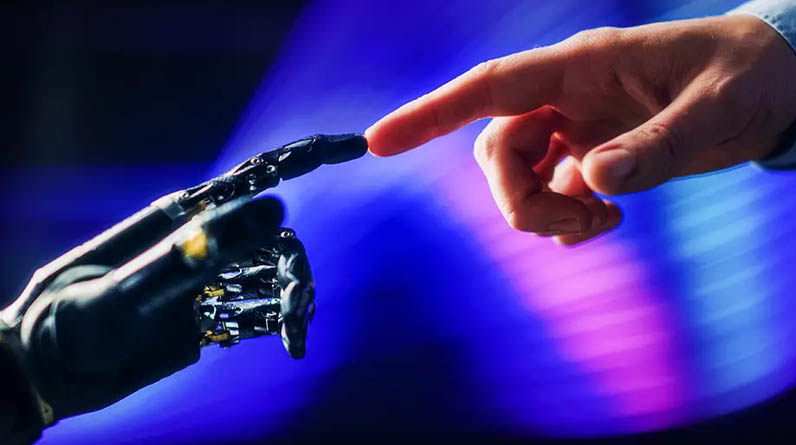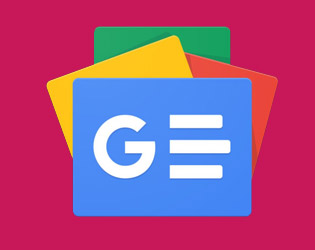Is Chtat GPT a Threat to Your Job?

OpenAI’s ChatGPT is a big language model that may be used for natural language processing tasks such as the production of text and the translation of languages. This model was developed by OpenAI. The GPT-3.5 (Generative Pretrained Transformer 3.5) model, which is one of the largest and most complex language models that are currently accessible, serves as the foundation for this system.
The capacity of ChatGPT to generate human-like text responses in response to prompted questions or statements is one of its most notable characteristics. Because of this, it may be put to use in a diverse array of applications, including the development of chatbots for use in customer service, the generation of responses to questions posed in online discussion forums, and even the creation of tailored content for use in social media posts. In spite of the fact that it offers a limitless number of advantages, it is also accompanied by a number of disadvantages, one of which is the possibility that a great number of people could lose their employment, a topic that will be covered in this article.
OpenAI revealed ChatGPT on a beautiful Wednesday morning, which immediately made headlines all over the world. As a result of its rapid and human-like responses to inquiries, it received a lot of traction and attention from individuals all over the world. Because of the immense amount of attention, the software had one million users in less than a week after it was first made available to the public. So, could you please explain ChatGPT to me? What does it do? And what exactly is the topic of all this excitement? It is a form of artificial intelligence that enables users to communicate with a virtual assistant using natural language. Well, to answer all these three questions fast and promptly much like ChatGPT would do, it is basically a type of artificial intelligence that does this. It is able to generate responses in near real-time based on the inputs provided by the user, and it does so in almost no time at all!
Chatbots have been around for quite some time, and in point of fact, all of us have observed the emergence of chatbots recognising a need to deliver individualised responses. New avenues of conversation and interaction are now available thanks to the proliferation of chatbots and other conversational user interfaces online. The capacity of ChatGPT to generate high-quality responses in real time in response to the user’s input is what differentiates it from other similar platforms and makes it stand out. Because of this, it is possible to have a discussion that is more organic and fluid because the ChatGPT is able to comprehend and reply to a wide variety of queries and statements.
Since its release a few weeks ago, this software has been well received by a sizable number of users, and individuals have begun incorporating its use into their day-to-day activities as a result. This new technology clearly shows a lot of promise in terms of the convenience it provides to human labour, whether it is used to the field of education or that of customer service.
Side effects are almost often accompanied by positive outcomes.

However, we must not lose sight of the fact that every coin has two sides; after all, this is how the world operates, right? In spite of the fact that it has a number of benefits, there are a lot of worries regarding the application and the impact of the use of ChatGPT because it has a number of drawbacks as well.
In the beginning, when you see the interface answer so intelligently and so human-likely to various inquiries that are given, you are literally seeing it accomplish the work that would be done by a paid human employee! Drafting emails, writing essays on a topic, compiling detailed to-do lists, and a great deal of other similar instances are pointers to the kind of work that would be done by employees in organisations. There are many other examples of this kind of work. In point of fact, a large number of middle-level professions around the world consist of responsibilities in which individuals are responsible for performing precisely these kinds of repetitive duties.
What if the corporation decided to eliminate those roles and have ChatGPT handle the responsibilities associated with them instead? You may relax; this is not some make-believe scenario at all. In point of fact, it is so accurate to life that it would surprise me if some roles hadn’t already been filled by other people.
Because AI is used to train the tool, it will only get better over time, and it will get better at a rate that is significantly faster than a human can learn and develop. In addition to this, its mastery of the language is superior to that of a great number of human speakers. For instance, if you ask it to write a draught for any kind of communication, it will most likely provide a response that is considerably more error-free in terms of language than the majority of people on earth would do if they were asked to create the same draught in their roles!
Taking into consideration the current situation and what ChatGPT is capable of doing, we might merely need to ask ourselves whether it poses a risk to humans or whether it is a benefit to them. On the one hand, it possesses enormous capabilities that can help and assist humans, but on the other hand, it might also have the potential to replace human effort, which would eventually eliminate many jobs in the industry. Jobs that are not specific to a single industry but can be found in other fields. The mere fact that it is capable of writing software and malware presents a risk to the world of technology. In response to a number of requests made to ChatGPT to develop malicious software, some of the requests were reported as in violation of the site’s content policy; however, ChatGPT eventually complied with the requests and delivered the desired results.
Because the technology is able to generate written text that is eerily similar to that produced by humans, some people believe it could one day replace even journalists. However, at its current state, the chatbot lacks the complexity, critical-thinking capabilities, or ethical decision-making abilities that are required for successful journalism. But for every journalism function that ChatGPT may not be totally fit, there are several where it seems to be in perfect accord. What’s more, as it keeps developing, it will keep entering into increasingly complicated areas of work, which challenge responsibilities currently overseen by more senior levels of employees in a corporation.
Clearly, this development might be as influential in the journey of technology as say, when the iPhone came into existence, or when the Internet became a service for mass usage. The kind of inflection these brought about in the years to come, would a service like ChatGPT produce a similar impact? Or more, maybe? Only time will tell if ChatGPT will be a blessing or a bane.
Read More Like This Here
Leave a reply
You must be logged in to post a comment.











